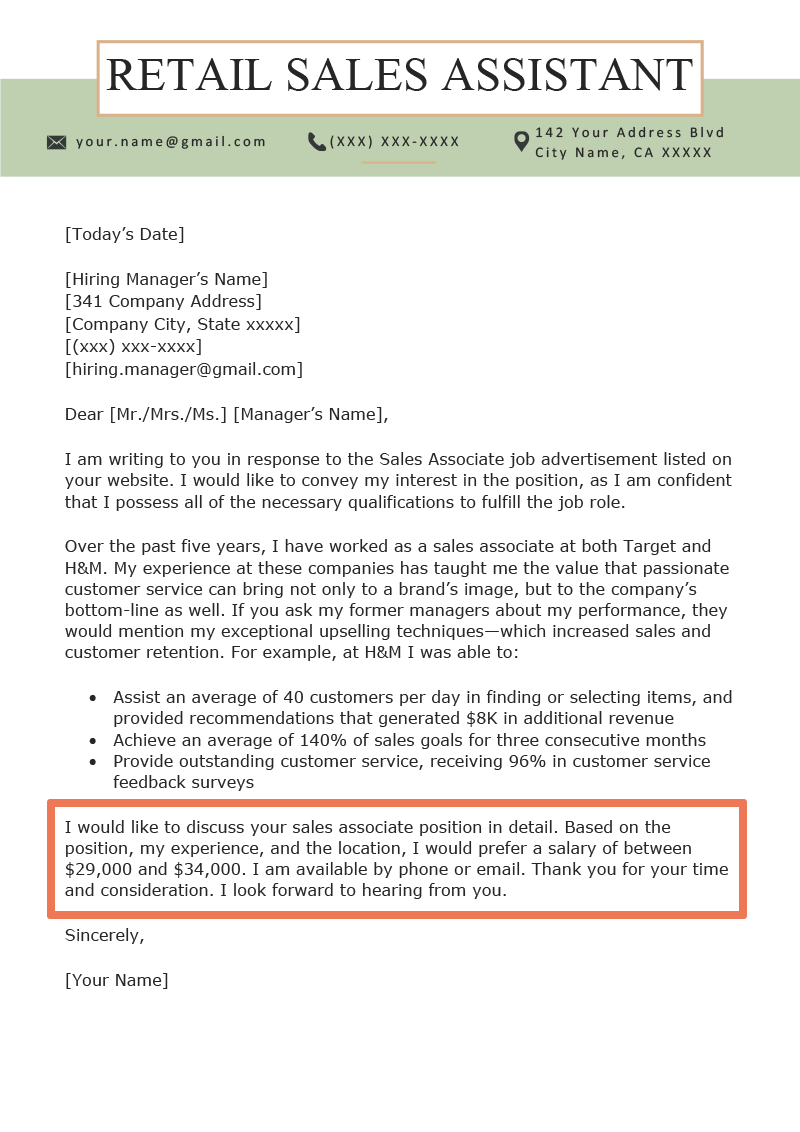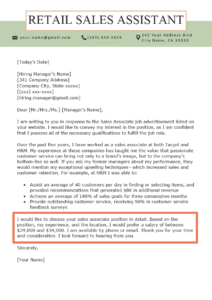Writing a salary requirements letter is a crucial step in the job application process. It allows you to clearly state your expectations and negotiate a fair compensation package. To help you craft an effective letter, this article provides a comprehensive template and guidance to help you present your salary requirements with confidence.
A well-written salary requirements letter can demonstrate your research, understanding of the industry, and value proposition. It also sets the tone for your negotiation and helps you avoid undervaluing or overstating your expectations. By following the template and tips provided in this article, you can increase your chances of securing a competitive salary.

Crafting a Comprehensive Salary Requirements Letter
Start your letter with a formal salutation addressed to the hiring manager or recruiter. In the first paragraph, briefly express your interest in the position and state your salary expectations. Be as specific as possible, including a range or exact figure. If you’re not sure what the appropriate salary range is, research industry benchmarks or consult with a recruiter for guidance.
In the next paragraph, justify your salary requirements by highlighting your skills, experience, and accomplishments. Quantify your achievements and provide specific examples of how you have contributed to the success of previous organizations. This demonstrates your value to the prospective employer and supports your request for the desired salary.
If necessary, include a third paragraph to address any potential concerns or objections the employer may have. For instance, if your salary expectations are higher than the industry average, explain the reasons for your request, such as your unique skills or extensive experience. You can also indicate your willingness to negotiate and provide a range of acceptable salaries.
Conclude your letter by reiterating your interest in the position and expressing your confidence that you can make a significant contribution to the organization. Thank the hiring manager for their time and consideration and close with a professional salutation.
Additional Considerations for Salary Requirements Letter
Before submitting your salary requirements letter, carefully review the job posting and company website to gather information about the salary range for the position. Consider the cost of living in the location where the job is based and the benefits package offered by the organization.
Use clear and concise language in your letter, avoiding technical jargon or ambiguous terms. Proofread your letter thoroughly for any errors in grammar, spelling, or formatting. Consider seeking feedback from a trusted friend, family member, or career counselor to ensure your letter conveys your message effectively.
Be prepared to negotiate your salary during the interview process. Research the industry average and be confident in presenting your expectations. However, also be willing to compromise and consider the overall compensation package, including benefits, bonuses, and perks.
By following these guidelines and using the provided salary requirements letter template, you can present your salary expectations with clarity and professionalism. This can help you negotiate a fair and competitive salary that aligns with your skills and experience.
Conclusion
Writing a strong salary requirements letter is essential for securing a competitive salary in the job market. By using the template and tips provided in this article, you can craft a persuasive letter that showcases your value and supports your desired compensation. Remember to research the industry, justify your expectations, and be prepared to negotiate during the interview process. With careful preparation and a well-written letter, you can increase your chances of achieving your salary goals.
As you draft your salary requirements letter, strive for clarity, professionalism, and confidence in your expectations. Tailor your letter to the specific position and organization, and use the template as a guide to ensure a well-structured and effective letter. By following these guidelines, you can create a persuasive document that supports your negotiation strategy and helps you secure a fair and competitive salary.



